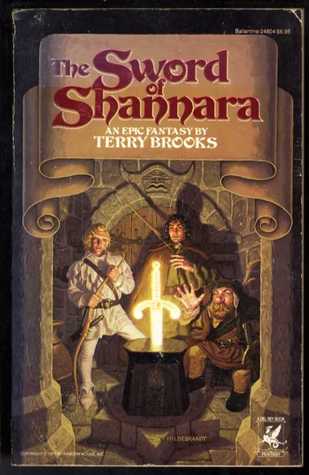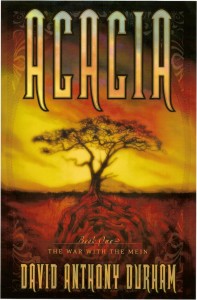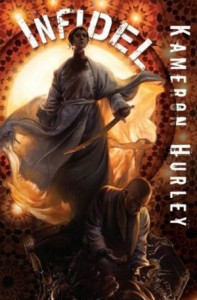 There’s an expectation that someone who reads from the Science Fiction & Fantasy section lacks maturity. They suffer from social anxiety and enjoys the not so occasional twinky. Because at the end of the day reading genre fiction demonstrates a complete lack of life acumen. Sound about right? It’s possible this is an American phenomenon and not something that’s shared worldwide, but I believe these assumptions are pervasive. There was a time I agreed with them.
There’s an expectation that someone who reads from the Science Fiction & Fantasy section lacks maturity. They suffer from social anxiety and enjoys the not so occasional twinky. Because at the end of the day reading genre fiction demonstrates a complete lack of life acumen. Sound about right? It’s possible this is an American phenomenon and not something that’s shared worldwide, but I believe these assumptions are pervasive. There was a time I agreed with them.
When I turned 18 the law told me I was an adult. I still couldn’t buy beer which seemed more of a marker of adulthood than the right to vote or being able to give “consent”, yet I followed the advice set down in Corinthians (you know, from one of those books full of factual things):
When I was a child, I spoke as a child, I understood as a child, I thought as a child: but when I became a man, I put away childish things.

I taped up my books and stashed them in my parent’s garage. That box contained a lot of Terry Brooks, Piers Anthony, David Eddings, and Raymond Feist. It may also have contained the first three books in the Sword of Truth series. I cannot confirm or deny these malicious rumors. If I was going to be an adult, I thought I should read like one.
What follows is no surprise: Don DeLillo, Martin Amis, Albert Camus, Cormac McCarthy. etc. In hindsight, the only thing that’s more pathetic than a forty year old reading Runelords (come on, even fantasy readers can admit that’s pathetic, right?) is a 20 year old thinking he knows what the fuck he’s talking about because he reads from the Time 100 Novel List. I’d be lying if I didn’t admit to keeping up with The Wheel of Time and A Song of Ice and Fire in these intermittent years, but it was done with decorum (i.e. hidden with the porn). Somewhere along this road away from fantasy I became deeply enmeshed in historical fiction. From Shogun to Gates of Fire I began projecting my adolescent love of fantasy into a more socially acceptable medium.
 It wasn’t until I was well out of school and into my late-twenties that I came across David Anthony Durham. He had written a trio of historical novels, the last of which told the story of the Roman victory over the Carthaginians. After finishing Pride of Carthage, I kept an eye out for Durham’s next novel. It was titled Acacia. The cover was tame, just a tree and a sunset sky. It could have been about botany – it wasn’t. Fantasy was back in my life to stay.
It wasn’t until I was well out of school and into my late-twenties that I came across David Anthony Durham. He had written a trio of historical novels, the last of which told the story of the Roman victory over the Carthaginians. After finishing Pride of Carthage, I kept an eye out for Durham’s next novel. It was titled Acacia. The cover was tame, just a tree and a sunset sky. It could have been about botany – it wasn’t. Fantasy was back in my life to stay.
People ask me frequently why I read the things I do. I’m an open genre blogger in a work environment where preferred reading is Adam Smith’s Wealth of Nations. What they’re really asking is how in God’s name did someone who reads fantasy get a woman that actually has sex with him often enough to bear children? I ask myself that same question although it has little to do with what I read and more to do with the fact that I haven’t successfully put dirty clothes in a hamper since I was seven. To the original question though, why do I read fantasy? Or maybe more importantly, why did I come back to it?
Reading, even the academic sort, is an escape from what’s going on around us. A Brad Meltzer novel, couched in American politics, is as much an escape from reality as Brandon Sanderon’s The Way of Kings. Trust me, politics isn’t as interesting as Meltzer makes it sound. So do I read to escape? Of course! However, it’s a mistake to presume that the desire for escapism is somehow exclusive, or heightened, among genre readers. An equally large mistake would be to presume that escapism is all fantasy has going for it.
I mentioned Acacia as the novel that brought me back. What’s so special about it? To anyone who’s read it, tropes abound. Noble children realize how crappy the world is outside their walls and they venture out to save it (Spectra wrote a slightly better summation). For someone who’d been in the desert of mainstream fiction for ten years it was a breath of fresh air. Beautifully imagined and full of texture it activated the part of my brain that had been so active in my youth, now fallen into disrepair. In spite of a straight forward and predictable narrative, I was invigorated. What made me really sit up and take notice though was the subtext – something I’d never noticed in my younger days. Behind the narrative there was a frank discussion on social class, duty, family, and fundamental morality. While in the moment Acacia felt special, I began to realize that it wasn’t Durham as much as the freedom fantasy offered him.
Let’s look at two Durham novels, his epic fantasy Acacia and his historical novel on slavery Walk Through Darkness. No one can read a novel on American slavery without attaching actual and true significance to what happened. But a novel about slavery set in a secondary world couched within an epic save-the-kingdom story arc? That’s something that I not only want to read, but something to which I attach no strings. As a fantasy reader I was freed from the restraints of what was real and allowed into a dialogue that was fearless and uninhibited about a subject matter that is anything but.
 Coming back to fantasy, I realized that I could be party to larger thematic discussions without it being heavy handed and couched in social miasma. God’s War, and its sequel Infidel, written by Kameron Hurley, illustrate this point. Gender roles and faith, redemption and reparation, along with many war novels tropes, make up the majority of Hurley’s commentary. Take these themes in a modern work of fiction and we’re looking at something like The Kite Runner – a good, but very heavy handed novel that relies so much on our perception of the world that honesty seems precluded.
Coming back to fantasy, I realized that I could be party to larger thematic discussions without it being heavy handed and couched in social miasma. God’s War, and its sequel Infidel, written by Kameron Hurley, illustrate this point. Gender roles and faith, redemption and reparation, along with many war novels tropes, make up the majority of Hurley’s commentary. Take these themes in a modern work of fiction and we’re looking at something like The Kite Runner – a good, but very heavy handed novel that relies so much on our perception of the world that honesty seems precluded.
Not all fantasy does this. Some of it is exactly what it looks like – light entertainment, which strangely enough also describes the vast majority of the stuff filed under “fiction”. Unfortunately, some of the writers still resist being classified as such to the detriment of the genre as a whole. I’m reminded of the distinction between those who read fiction and those who insist it’s literature. As though all literature isn’t fiction and may God strike them down if childish fantasy be considered either.
When I came back to fantasy I found that instead of worrying about what literature should be, I now saw what it could be. As children we’re constantly urged to use our imagination and then when we turn some not-so-magical age we’re constantly urged to put it away. Be realistic. Stop dreaming. Do something meaningful. Why can’t imagination be meaningful? That’s why I came back – because it can and it is. May speculative fiction continue blowing preconceptions to kingdom come. Can someone pass me a twinky?


nice article – it sums up more eloquently thatn I can many of the reason I read fantasy, though for me it was more of a discovery than abandoment.
I agree with so much of what you say here, that I wish I had written it.
@Neth and @Maz:
Thanks for the kind words.
I’m with Mazarkis – I wish I’d written something like this… Very good article!
(Only – who’s Brad Metzger?)
Doh. Meltzer.
I understand your perspective, starting with one, growing up, expanding your horizons, which includes coming back to some more growing up. But why the snarky dig against the biblical reference at the beginning of your post? That made no sense, since you were talking about growing up…
@Steve: I think he was being sarcastic due to the fact those of us who follow this blog are typically ears-deep in fantasy/fiction literature as opposed to non-fiction. I could be wrong, though.
@Steve
I’d say Miles got pretty close. It’s meant to juxtapose the point of made up fantasy with a book people take far more seriously. I probably could have chosen a less controversial one, but where’s the fun in that?
Fantastic article! I wholeheartedly concur. Without unbound imaginations, many modern (and not so modern) advances might never have come about. People who say you have to behave like an adult are generally those who never allowed themselves to dream of anything beyond what they believed they could expect.
I’m very proud of my single digit mental age. Astonishingly it hasn’t prevented from holding down paying jobs, and it was definitely responsible for some of my more fruitful life decisions, without which I wouldn’t have nearly so many funny stories to tell my friends over drinks.
Your assessment of historical fiction as a more “socially acceptable medium” of escapism as compared to fantasy seems quite apt. I recently realized that the reason I’ve long loved both genres is in part due to the adventure factor (swashbuckling stories, all the way), as well as the complete and utter displacement. There are a lot more similarities between the two genres than initially meets the eye…
I furthermore completely agree with you regarding kids and imagination. I’ve never understood where along the road to adulthood children are asked to set aside the vibrant imaginations that had so long been touted as crucial in our development. “Imagination is meaningful” – that’s worth a whole discussion in its own right.
Fantastic post. I’ve had much the same experience–left the genre for a long time, immersed myself in a lot of non-fiction or “classic” fiction, and came back. I also love that we can ask questions in fantasy and science fiction that we can’t ask in other genres, and that there isn’t the baggage around those questions as there might be in other genres.
Great post, Justin. I’m very pleased to have played a role in it. And it’s particularly fitting because I had the same sort of journey away from fantasy and then back again myself. Good stuff.
[…] Justin Landon on Fantasy: Why I left and why I came back. […]
Man, in a lot of ways, this post is me. I stopped intentionally looking for science fiction and fantasy to read (and let my subscriptions to Asimov’s and Fantasy and Science fiction magazine lapse) around college. I took writing courses, and nobody was interested in anything but “serious” literature. So it went… for 20 years or so. At some point I decided to heck with it, I should read and write what I like, and when I stopped and wondered what that meant… I realized it meant that I mostly want to read high quality fantasy, science fiction, and urban fantasy. Oh, and short stories! I let myself rediscover a world of short, speculative fiction!